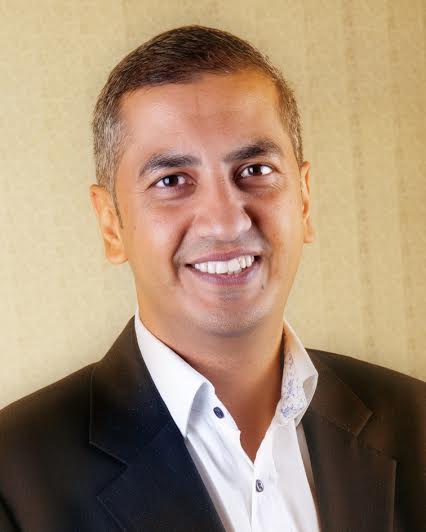
While 40 world leaders, 14 Nobel laureates and 2 500 participants gathered for the 46th annual World Economic Forum (WEF) in Davos, business leaders in Zimbabwe gathered for the Confederation of Zimbabwe Industries (CZI) 2016 Economic Outlook Symposium. The theme of this year’s WEF was “Mastering the 4th Industrial Revolution”.
Ritesh Anand
The WEF dealt with key global issues ranging from the slowdown in China, technology, falling oil prices, and emerging markets, while delegates at the CZI symposium grappled with the impending economic crisis facing Zimbabwe. What is clear from the meetings in Davos is that the risks to the global economy are clearly on the downside and Zimbabwe cannot rely solely on the international community to spur economic growth and recovery.
Ahead of the meetings in Davos, the International Monetary Fund (IMF) downgraded its outlook for global growth (from 3,6% to 3,4%) for the second time in just three months as it said a “shot in the arm” from tumbling oil prices would not be enough to lift countries out of their economic malaise. The IMF said weaker growth would be driven by a further slowdown in the Eurozone, China and a deep contraction in Russia, where the economy is expected to shrink by 3% this year.

I have followed Davos for over a decade. The mood in Davos this year was mixed, perhaps overshadowed by the recent volatility in equity markets. It felt like a tug-of-war between fear and optimism, reflecting deep uncertainty for what 2016 may bring.
On one side, pessimists warned of a slowdown in China, deepening geo-political crises and plunging commodity prices. On the other side, optimists pointed to stronger United States growth and the opportunities afforded by rapid technological progress. Perhaps the ambivalent mood was best summed up by the legendary investor George Soros: “I see light at the end of the tunnel,” but “I just don’t know how to get there.”
Turning to the theme of this year’s event, it was Estonian President Toomas Hendrik Ilves who stole the show. While every politician talks about reform and embracing the future, the Estonian president has done it.
- Chamisa under fire over US$120K donation
- Mavhunga puts DeMbare into Chibuku quarterfinals
- Pension funds bet on Cabora Bassa oilfields
- Councils defy govt fire tender directive
Keep Reading
Estonia is perhaps the most digitalised country in the world. Every citizen has a unique digital identifier and can bank, start a business, sign contracts, pay taxes and even vote from their mobile phone. Digitalisation delivers huge efficiencies to the health and education system. Even non-Estonians living anywhere in the world can apply for e-residency, enabling them to start a business, open a bank account and make payments online. For Ilves, digital government is not just a policy, it’s a political philosophy centred around inclusion, competitiveness and opportunity.
So while Zimbabwe’s business leaders grapple with a shrinking economy, deflation, high rates of unemployment, an impending drought, depressed commodity prices, the global economic outlook provides little solace. The risks are clearly to the downside:
The potential for a sharper-than-expected slowdown in China — A series of policy missteps in the last few months have undermined confidence in Chinese authorities and precipitated heavy falls in equity markets. However, the point made over and over this week is that China’s stock market is a sideshow: less than one in 30 Chinese people own stocks. The real problems to watch in China are: an extremely unbalanced economy, wasteful investment, chronic over-capacity and high debt.
Trouble in emerging markets — In recent years, emerging markets’ companies have dramatically increased their US dollar-denominated debts. The Bank for International Settlements calculates this now stands at US$4 trillion for emerging markets as a whole, four times higher than in 2008. Now companies holding these debts are being hit by the double whammy of rising interest rates and the rising US dollar. Concerned investors withdrew US$52 billion from emerging market equity and bond funds in the last three months — the largest quarterly outflow on record.
Geopolitical risks — An escalation of ongoing geopolitical tensions in a number of regions — Syria, North Korea, Russia, cyber-security — are affecting confidence. These risks have the potential to disrupt global trade, financial, and tourism flows.
The concern is that if any of these risks materialises, governments have few tools to respond now that fiscal space is exhausted and monetary policy has reached its limits. According to Nobel laureate Professor Michael Spence of the Stern School of Business at New York University, “It is a fragile and deteriorating situation globally, with little in the way of effective counter-measures.”
As the participants at Davos 2016 head home this week, their minds will be acutely focused on the downside risks facing the global economy.
Closer to home, Zimbabwe’s business leaders were left wondering if and when Zimbabwe will ever turn? Unlike the global economy, many of our problems are self-inflicted and can easily be resolved through determined political leadership, vision and strategic direction. We lack a common vision and strategic direction. Perhaps the global headwinds will force Zimbabwe to take a closer look at itself and the challenges that lay ahead.











